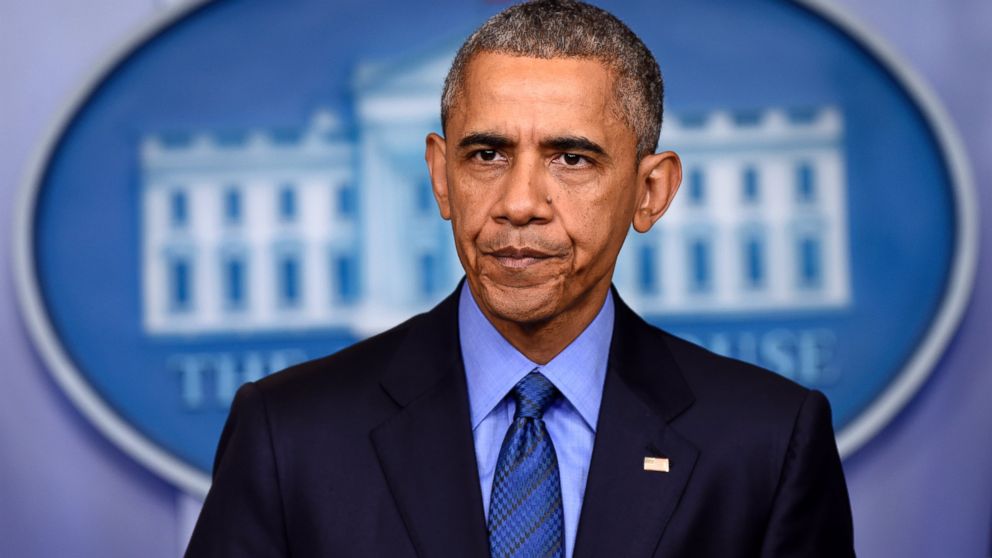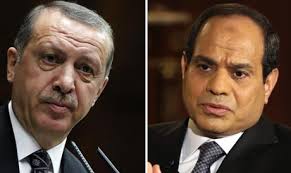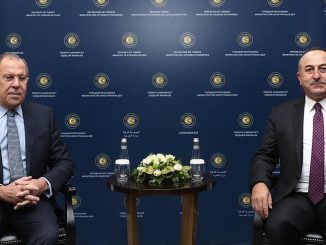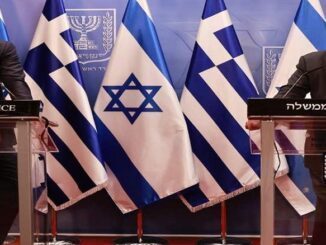
U.S. President Barack Obama said on Sunday that the United States and Russia were struggling to reach a ceasefire agreement on Syria as there are huge differences while the two sides planned to meet again on Monday.
“We’re not there yet,” Obama told reporters after a meeting with British Prime Minister Theresa May on the sidelines of the G20 summit in the Chinese city of Hangzhou.
“We have grave differences with the Russians in terms of both the parties we support but also the process that is required to bring about peace in Syria,” he said.
“If we do not get some buy-in from the Russians on reducing the violence and easing the humanitarian crisis, then it’s difficult to see how we get to the next phase,” Obama said.
The White House has said Obama and Russian President Vladimir Putin likely would have the chance to talk informally on the sidelines of the G20.
Russia and the US have been striving for weeks to secure a ceasefire between Syrian Bashar al-Assad’s government and moderate rebels that would expand humanitarian access to hundreds of thousands of civilians caught in the crossfire.
The strategy has pushed US-Russian militarily partnership against “extremist groups” operating in Syria. But beyond the Islamic State (ISIS) and al-Qaeda, Moscow and Washington have conflicting views about who fits in that category.
Ceasefire agreement
An agreement that would stop the fighting and allow more humanitarian deliveries looked set to be announced by U.S. Secretary of State John Kerry and Russian Foreign Minister Sergei Lavrov in Hangzhou.
Two lecterns had been set up in a room for a news conference. But Kerry emerged alone to say a couple of issues still needed to be resolved and the two sides would resume talks on Monday. He did not elaborate.
The plan would need Russia to convince President Bashar al-Assad to agree on grounding his air force, a move that Russian Foreign Minister Sergei Lavrov has said was not the goal.
Kerry said he would not rush into any agreement just to see it fail again. A senior State Department official, who declined to be named, said Russia had walked back on some of issues that the sides had already agreed on, which is why both sides need to continue talking.
Kerry said it remained to be seen whether the sides could agree on a deal.
“There are a couple of tough issues that we talked about today that we will go back and review, I will go back and review, and we’ve agreed to meet tomorrow morning and see whether or not it is possible to bridge the gap, come to conclusion on those couple of issues,” Kerry said.
Russia’s Deputy Foreign Minister Sergei Ryabkov, also speaking in Hangzhou, said earlier that a deal was close but that the timing of any announcement could not be predicted.
“We are talking about most serious issues of implementing a ceasefire,” he said. “We are close to the deal… but art of diplomacy requires time to implementation. I can’t tell you when the agreement will be reached.”
A letter from Washington’s Syria envoy Michael Ratney to the Syrian armed opposition, a copy of which was seen by Reuters, laid out some of the ceasefire terms.
It would oblige Russia to prevent government warplanes from bombing areas held by the mainstream opposition, and would require the withdrawal of Damascus’s forces from a supply route north of Aleppo, the letter dated Sept. 3 said.
In return, the United States would coordinate with Russia in fighting against al Qaeda, it said, without elaborating.
The deal would focus on delivery of humanitarian supplies to Aleppo, where recent advances by both sides have cut supplies, power and water to nearly 2 million people in government- and rebel-held areas.
It also required the Syrian government and Russia to avoid bombing opposition-held areas – including where more moderate insurgent groups are operating close to Jabhat Fatah al-Sham, previously the al Qaeda-affiliated Nusra Front.



